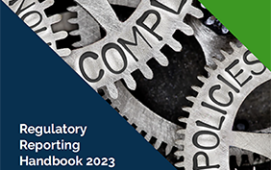The Depository Trust & Clearing Corporation (DTCC) has adopted Markit’s new entity identifier system for loans processed by its suite of services for the syndicated loan market, Loan/SERV. According to DTCC, the collaboration between the two vendors is aimed at reducing operational risks within the processing of syndicated loans by the introduction of standard, unique entity identifiers.
Chris Childs, DTCC vice president of Global Loans Product Management, explains that rationale behind the move: “A readily available and uniform identifier scheme is central to the provision of our automated services. We believe that Markit’s entity identifiers will help the market move to standardisation.”
The vendor claims the addition of these identifiers will enhance the accuracy and efficiency of its service. It hopes that because Markit’s entity identifiers undergo a stringent validation process prior to loan issuance, use of the identifiers will enable Loan/SERV to perform position reconciliations using verified entities. Prior to this, obtaining reconciliation information from the agent banks was a complicated, manual process, says DTCC.
According to DTCC, its users are happy with the addition of these identifiers. Marc Romain, managing director of Barclays Capital, highlights the user perspective: “Collaboration is the key to bringing change to the loan market. The use of Markit’s identifiers with DTCC’s services brings together two foundational components of a universal identification system for the loan market.”
The Loan/SERV Reconciliation Service and Loan/SERV Messaging Service, launched in fourth quarter of last year, both rely on the use of standard identifiers to define specific loans and market participants.
Markit introduced loan entity identifiers last year as part of a broad identification system for the loan market. Working in collaboration with Standard & Poor’s and Cusip Global Services, Markit issued the first validated entity identifiers in early 2009.
The issue of a lack of standard entity identifiers has long been bemoaned by the industry at large and although this agreement only covers a small part of the financial market, it is a step in the right direction towards collaborative progress towards standardisation. Lack of clarity around entity identification and counterparty data have been blamed for contributing to the financial crisis and the confusion following the fall of institutions such as Lehman Brothers last year.
Subscribe to our newsletter



